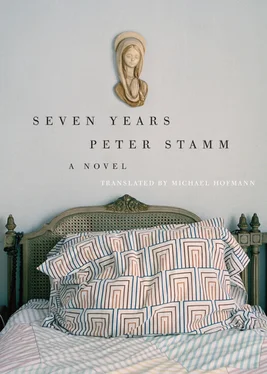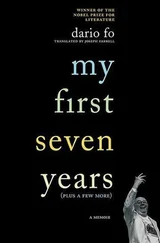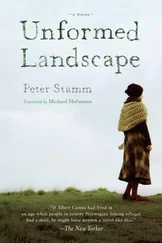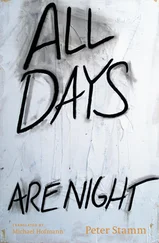We set aside more time for Sophie too. We joined the Parent-Teacher Association of the Waldorf school, Sonia worked for the festival committee and helped organize the twice-yearly festivities, and I drew up a plan for a new central heating system.
I stopped drinking, and for the first time in years I designed buildings again. I was much bolder than before, it was as though I had nothing left to lose. When I looked through a volume of Aldo Rossi’s designs again, I saw a sentence of his that seemed appropriate. Seek to change the world, even if only in little pieces, in order to forget what we may not have .
None of my designs was executed, but that didn’t matter, on the contrary, it kept me from having to make compromises, and allowed me to work freely and follow my own tune. I actually felt like an architect again, and that affected my work on building sites.
Sonia’s style changed, she had finally broken free of her mentors and found her own language. It sounds cynical, perhaps, but it seemed that the crisis had opened our eyes to new ways of doing things, whereas in the years of success we had barely evolved at all, and just imitated ourselves.
Sonia wrote articles for architectural journals, and was invited to conferences and finally was given a teaching job at Dessau. Then we won a contest for a social housing project in Linz. We’re back in business, said Sonia, when she broke the good news to me.
That evening we celebrated. We left Sophie with her grandparents and went to a good restaurant. Do you think we can expense this? asked Sonia. In six months our probationary period is over, I said, then we’ll be clear of debt and we can do whatever we want. I’m amazed we’ve managed this fresh start. You know the feeling of not being able to turn around, but having to go on and on in the same direction? And the awful thing about that is it has something tempting about it.
If you give in, you don’t have to struggle, said Sonia. Maybe, I said. I just couldn’t see any way out. Sonia shook her head. Giving up was always cowardly. Even if you lose in the end, it’s still better not to lose without a fight. That’s what I love you for, I said, your eternal optimism. Sonia seemed not to detect the irony in my voice. That’s not optimism, she said, as though offended by my remark, that’s attitude.
And they lived happily ever after, said Antje. Come on, I said, we’d better get back. Sonia will wonder what’s kept us. On the way home, Antje asked me what plans I had. No plans, I said. And the affair with Ivona is finished, for good? It’s over, I said. Antje looked at me skeptically. Well, let’s hope it’s over for her too, she said.
We’re back, I called out, and shut the door behind me. It was a little after twelve. Antje said she would go and pack. I went into the living room and noticed right away that there was something wrong. Sonia was standing by the window. When she turned toward me, I saw her eyes were reddened. I asked her if she was hungry, did she want me to make her something to eat? No reply. What’s the matter? I asked. Sonia’s expression had something desperate about it. She went to the sofa, and then back to the window again. With her back to me, she started speaking so softly that I could hardly make out what she said. I pretended I didn’t understand, I wanted not to understand.
What do you mean, you’re going to Marseilles? I sat down on the sofa, and Sonia came beside me, with her head in her hands. I’m not happy here, she said.
We sat side by side in silence. Once I tried to put my arm around her, but she was so stiff that I aborted my embrace and pulled my arm back. I thought about ridiculous things, that we’d have to divide up our property, that the house belonged to Sonia’s parents, what our employees would say. I thought about it all, but I felt nothing beyond confusion and a kind of terror that was neither positive nor negative. Was it Antje’s idea? Sonia seemed relieved to be able to speak at last. She said Antje knew nothing about this. It was her decision, made long ago. When she was in Marseilles, she’d realized how many possibilities she still had in her. Is it to do with Albert? Sonia shook her head. She had never felt at ease here, it wasn’t her world. But you wanted the house by the lake, I said, you wanted to live near your parents, I’d much rather have stayed in the city. Sonia laughed, but it sounded more like crying. We could have talked about all that sometime. I had the feeling we were getting along particularly well recently. That’s not what it’s about, said Sonia. You don’t need me anymore.
Antje came upstairs and said she was packed and ready. Was anyone else hungry besides her? Sonia jumped up and ran to her, and led her out of the room by the arm. After about ten minutes, she came back and sat down beside me again.
We talked, though there was no point. Sonia had given up on our relationship long ago, it was just a matter of getting me to understand her reasons and limiting the damage. The discussion went around and around in circles. I contradicted her, maybe out of cowardice, even though I knew she was right. I was reconciled to the situation, I wasn’t discontented. But contentment wasn’t what Sonia was after. Maybe things will go wrong, she said, but at least I’ll have given it a go.
After some time Antje came back upstairs and said she was hungry, and should she fix some spaghetti for us. When she got no reply, she left and came back with Sophie, who was carrying her cat in her arms and looking apprehensively at us. The two of us are going out for lunch, said Antje with a show of jolly determination. Only when the front door closed did Sonia and I continue talking.
What about Sophie? I asked. There’s always a solution, Sonia said. You must think I’m a selfish bitch. No, I said, I don’t at all. She doesn’t want to go to Marseilles. Sonia nodded, I know, maybe it’s better if she stays with you. She hesitated. We’re going to have to tell her I’m not her mother. I looked at her doubtfully. She has a right to know, said Sonia. And what if she wants to meet her mother? I asked. Well, perhaps it doesn’t have to be right away, said Sonia. She said she had felt from the start that what we were doing was wrong. Why didn’t you say anything? I asked. I was afraid to lose you, said Sonia. And now I’m losing you, I said. Sonia shook her head. She said we would stay friends. Not much would change. She hesitated. Then she asked whether I intended to move in with Ivona. I think it was the first time she said the name. No, I said, that’s over. I wanted to add that I’d never loved Ivona, that she was never any competition for Sonia, but I wasn’t sure if it was true, so I didn’t say it. Who knows, said Sonia, smiling, as if she didn’t believe me. I asked her when she wanted to leave. She said there was no hurry. We hadn’t quarreled, and there was no other man in the picture, and she had to organize everything anyway, an apartment, a job. Are we having Christmas together? I asked, and with that I suddenly broke down and wept. I didn’t know you could do that, said Sonia, and put her arm around me, and held me close. There, there, she said.
I was surprised that Sonia didn’t insist on taking Antje to the airport. Maybe she wanted to talk to Sophie while I was away, or she hoped Antje would be able to explain it to me, where she had failed. But Antje stayed off the subject and talked about other things. Only when I brought it up, she unwillingly gave me information. She said she had had no idea that Sonia wanted to leave me. On the contrary, she had the feeling that things with us were going better. That’s what I thought too, I said. Maybe she stopped fighting it, said Antje.
I asked her about Sonia’s time in Marseilles. No, said Antje, Sonia hadn’t gone out much. The evening I couldn’t catch her on the phone, she’d gone to the cinema, by herself. If there’d been an affair, she, Antje, would have known. That would make it easier, wouldn’t it? That would have been a reason at least. I asked Antje what she would do in my shoes. Let her go. You mean, she might come back to me sometime, when she’s ready? Antje said nothing. And what if I agreed to go to Marseilles? It’s too late, said Antje.
Читать дальше












